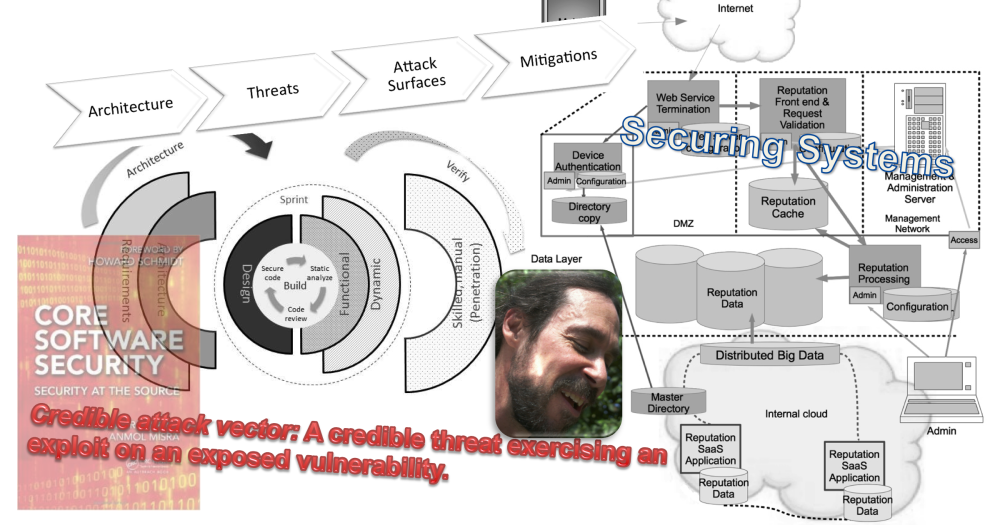Seriously? You responded to my security due diligence question with that?
Hopefully, there’s a lesson in this tale of woe about what not to do when asked about product security?
This incident has been sticking in my craw for about a year. I think it’s time to get it off my chest. If for no other reason, I want to stop thinking about this terrible customer experience. And yes, for once, I’m going to name the guilty company. I wasn’t under NDA in this situation, as far as I know?
There I was, Enterprise Security Architect for a mid-size company (who shall not be named. No gossip, ever, from this blog). Part of my job was to ensure that vendors’ product security was strong enough to protect my company’s security posture. There’s a due diligence responsibility assigned to most infosec people. In order to fulfill this responsibility, it has become a typical practice to research software vendors’ product security practices.Based upon the results, either mitigate uncovered risks to policy and industry standards or raise the risk to organizational decision makers (and there are always risks, right?).
Every software vendor goes through these due diligence investigations on a regular basis. And I do mean “every”.
I’ve lived on both sides of this fence, conducting the investigations and having my company’s software go through many investigations. This process is now a part of the fabric of doing secure business. There should be nothing surprising about the questions. In past positions, we had a vendor questionnaire, a risk scale based upon the expected responses, and standards against which to measure the vendor. These tools help to build a repeatable process. One of these processes is documented in a SANS Institute Smart Guide released in 2011 and was published by Cisco, as well.
Now, I’m going to name names. Sorry, Google, I’m going to detail just what your Docs sales team said to me. Shame on you!
When I asked about Google Docs product security here is the answer, almost verbatim, that I received from the sales team:
“We’re Google. We can hire Vint Cerf if we want. That is enough.”
Need I point out to my brilliant readers that Dr. Vint Cerf, as far as I know, has never claimed to be an information security expert? I’m sure he knows far more about the design of TCP/IP than I? (but I remind readers that I used to write TCP/IP stacks, so I’m not entirely clueless, either). And, Dr. Cerf probably knows a thing or two about Internet Security, since he runs ICANN?
Still, I can tell you authoritatively that TCP/IP security and Domain Name Registry security are only two (fairly small) areas of an information security due diligence process that is now standard for software vendors to pass.
Besides, the sales team didn’t answer my questions. This was a classic “Appeal to Authority“. And, unfortunately, they didn’t even bother to appeal to a security authority. Sorry Vint; they took your name in vain. I suppose this sort of thing happens to someone of your fame all the time?
Behind the scenes, my counter-part application architect and I immediately killed any possible engagement with Google Docs. Google Sales Team, you lost the sale through that single response. The discussion was over; the possibility of a sale was out, door firmly closed.
One of the interesting results from the wide adoption of The Web has been the need for open and transparent engagement. Organizations that engage honestly gain trust through their integrity, even in the face of organizational mis-steps and faux pas. Organizations who attempt the old fashion paradigm, “control all communications”, lose trust, and lose it rapidly and profoundly. Commercial companies, are you paying attention? This is what democracy looks like (at least in part. But that’s a different post, I think?).
Product security is difficult and demanding. There are many facets that must compliment each other to deliver acceptable risk. And, even with the best intentions and execution, one will still have unexpected vulnerabilities crop up from time to time. We only have to look at development of Microsoft’s product security programme to understand how one of the best in the industry (in my humble opinion) will not catch everything. Do Microsoft bugs surface? Yes. Is the vulnerability level today anywhere near what it was 10 years ago? Not even close. Kudos, Microsoft.
It’s long past the time that any company can coast on reputation. I believe that Google do some very interesting things towards the security of their customers. But their sales team need to learn a few lessons in humility and transparency. Brand offers very little demonstrable protection. Google, you have to answer those due diligence questionnaires honestly and transparently. Otherwise the Infosec person on the other side has nothing against which to base her/his risk rating. And, in the face of no information, the safest bet is to rate “high risk”. Default deny rule.
It’s a big world out there and if your undiscovered vulnerabilities don’t get’cha now, they will eventually. Beware; be patient; be humble; remain inquisitive; work slowly and carefully. You can quote me on that.
cheers,
/brook
